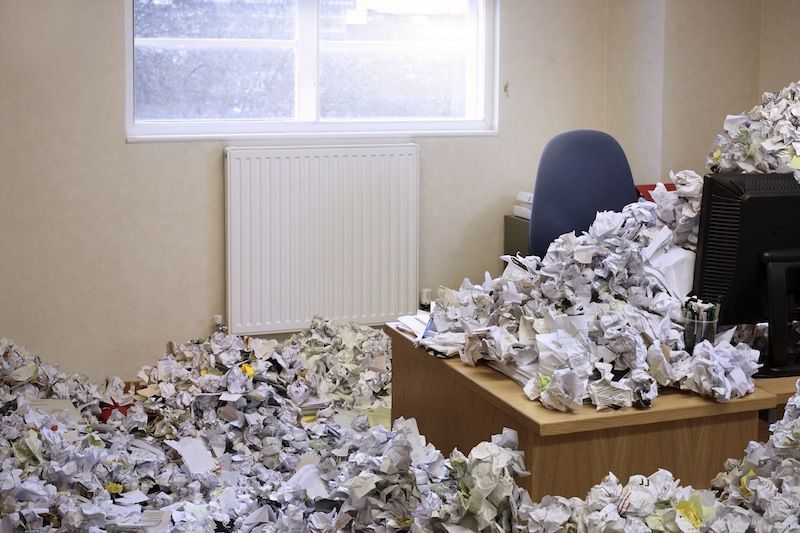Top 20 Habits for Happiness, Health, Productivity and Success
I am fascinated with the habits that affect happiness, health, productivity, and success. I read everything I can get my hands on related to these topics and continuously experiment with new tactics to see what works in my own life. Based on my research, reading, learning from the experts, and personal experimentation, here are the 20 best habits that I have found for happiness, health, productivity, and success.
20. Be generous — Spending money on other people has been shown to lead to greater well-being and happiness than spending it on yourself.
19. Ask more questions — And actually listen to the answers. Creativity and leadership expert Paul Sloane, author of 17 books including The Innovative Leader, believes that asking questions is the single most important habit for innovative thinkers.
18. Make Your Bed — Gretchen Rubin, best-selling author and happiness researcher, says “When I was researching my book on happiness, this was the number one most impactful change that people brought up over and over.” Making your bed starts a chain reaction of other productive habits throughout the day.
17. Celebrate — Pause to enjoy your successes before moving on to the next thing. David Campbell, former senior fellow with the Center for Creative Leadership, said it best: “Celebrations are the punctuation marks that make sense of the passage of time; without them, there are no beginnings and no endings. Life becomes an endless series of Wednesdays.”
16. Smile — The simple act of smiling reduces stress and increases happiness, even if you’re faking or forcing the smile. Putting on a happy face actually makes you happier.
15. Buy experiences, not things — An extensive amount of research shows that experiences actually bring people more happiness than material goods.
14. Say no more often — Trying to do everything usually means not doing anything very well. Journalist and success researcher Shane Snow says that often “the thing holding us back from success is our inability to say no.”
13. Be on time — Being on time is one habit that accomplishes two very important things — it melts away stress and improves relationships at the same time. New York Times best-selling author Greg McKeown recommends adding a 50% buffer to the amount of time you estimate something will take in order to show up on time.
12. Choose a good attitude — Attitude is a decision that we make every day (and often throughout each day). Strengthen relationships and increase your chances of success by deciding to have a good one.
11. Block off time on your calendar to think — Take inspiration from Bill Gates, LinkedIn CEO Jeff Weiner, and Amazon CEO Jeff Bezos by building uninterrupted thinking time into your schedule.
10. Don’t check email first thing in the morning or last thing before bed — This approach is championed by Tim Ferriss who says that email first thing derails your priorities for the day and email right before sleeping gives you insomnia. Putting this into practice has been a life-changer for me.
9. Do one thing at a time — Do one thing at a time and pay attention while doing it. Giving our attention only to the task at hand enables us to accomplish more while feeling less anxious and less scatterbrained. On a related note, put your phone away when you are spending time with another person and give them your undivided attention.
8. Wake up early — Get a jump-start on the day and tackle your most important task first-thing. Take inspiration from early risers such as Richard Branson, Michelle Obama, Anna Wintour, Apple CEO Tim Cook, Starbucks CEO Howard Schultz, and more.
7. Limit your daily to-do list to your 3 most important items — And watch your productivity skyrocket. Chris Bailey, best-selling author of The Productivity Project, says this habit is one of the absolute best ways to positively impact your work and life on a daily basis.
6. Write down the 3 things you are most grateful for at the end of each day — Having an attitude of gratitude has been shown to improve mood and physical health. Lewis Howes, best-selling author of The School of Greatness, says “If you concentrate on what you have, you’ll always have more. If you concentrate on what you don’t have, you’ll never have enough.”
5. Eat Food. Not Too Much. Mostly Plants. — This is the philosophy endorsed by renowned author and food researcher Michael Pollan. Eat your way to health with these 50 foods, recommended by neurologist Dr. David Perlmutter.
4. Read — Reading is one habit ultra-successful people have in common. Business leaders such as Warren Buffett, Bill Gates, and Elon Musk say reading has been critical to their success.
3. Get 8 hours of sleep per night — Anything less won’t cut it, says Dr. Mike Dow, best-selling author of The Brain-Fog Fix. The experts recommend establishing and sticking to a consistent sleep schedule, going to sleep and waking up at the same time every day (including weekends).
2. Maintain close relationships — Social connection is the greatest predictor of happiness, according to Harvard researcher and happiness expert Shawn Achor who has studied the topic for more than a dozen years.
1. Exercise — “The single-most powerful tool you have to optimize your brain function,” says John J. Ratey MD in his best-selling book Spark. Exercising daily (even for as short as 30 minutes) has changed my life more than any other habit!
These 20 habits have stood out for me as the best of the best.
How about you? What habits do you have that should be on the list?
Source: Top 20 Habits for Happiness, Health, Productivity and Success


 What’s the best way to organize your workspace?
What’s the best way to organize your workspace?